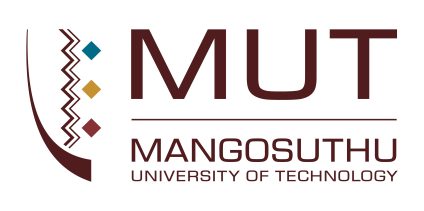
The Department of Information and Communication Technology (ICT) has achieved a major milestone as its student team advanced to the finals of the DIRISA Datathon 2025, organised by the Data Intensive Research Initiative of South Africa (DIRISA), a subdivision of the Council for Scientific and Industrial Research (CSIR). The datathon brings together top-performing universities from South Africa and the SADC region to compete in solving real-world challenges using data science. A datathon is a time-limited, collaborative competition where teams use data analysis skills to solve a specific data-driven problem. A datathon is similar to a hackathon, but it focuses on data. Those participating in the datathon are given access to datasets and work to extract insights, identify trends, and create innovative solutions, such as predictive models or visualisations. All this is supposed to happen within a set timeframe.
A Lecturer in the Department of Information Communication and Technology (ICT), Xolisa Piyose, explained more about the competition: “Students from all participating universities are required to complete a qualification assessment to be considered for the pre-qualification round. Only the top six performers from each university advance to this stage. As part of the second-year subject I teach, I make this assessment compulsory for all students. The assessment is designed and administered by DIRISA. At MUT, 38 students wrote the assessment, and the six highest-performing students were selected to represent the University in the pre-qualification round.”
Over 20 universities from South Africa and the SADC region, including institutions from Lesotho and Namibia, participated in the pre-qualification rounds, competing for 10 available spots in the final competition. Each team was given the theme “Crime in South Africa” and had to develop a data-driven solution to address the issue. The MUT Team obtained sixth in the competition. The MUT Team is now preparing for a second segment of the competition, scheduled to take place in Cape Town this December. The students going to Cape Town are Anele Jingela, Samkelo Gumede, Nqubeko Masinga, Kevin Manzini, Khethelo Cebekhulu, and Luyanda Phungula.
Under the leadership of Piyose, MUT showed remarkable growth, improving its overall performance from 63% in 2024 to 74.7% in 2025, and securing a place among the top 10 institutions nationally.
Piyose said the competition required students to excel in data collection, modelling, and interpretation through multiple qualification stages. “The MUT Team demonstrated strong technical and analytical skills, particularly in data forecasting, predictive modelling, and system deployment,” Piyose said. According to him, the team’s improvement reflects the department’s dedication to blending theory with hands-on practice, preparing students to meet the data-driven demands of the Fourth Industrial Revolution (4IR). “Participation in this continental competition also strengthens MUT’s reputation as a forward-thinking University, committed to innovation and excellence in applied computing,” said Piyose.
Piyose also said that their students have shown that determination and teamwork, guided by a strong practical curriculum, can achieve outstanding results. “This recognition at a national and regional level proves that MUT continues to rise as a leader in applied data science education. We are proud to represent the university in the DIRISA finals this December,” Piyose said.
The students, who are all in their second level of study, have embraced the opportunity to take part in the competition. Kevin Manzini said his journey into the DIRISA Datathon began with initial hesitation, “but Mr Piyose, my lecturer, strongly encouraged participation. Within days of training, his vision became clear; I was captivated by Machine Learning and recognised its vast potential.” Samkelo Gumede said he was “thrilled”, while Nqubeko Masinga has been “overwhelmed with excitement”.
